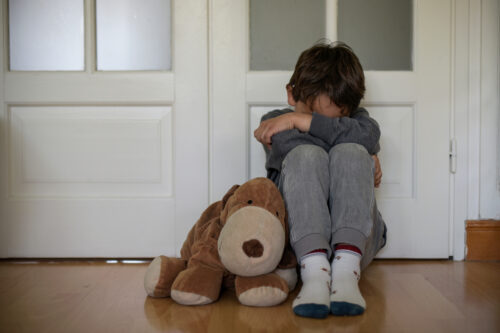
When child abuse is a factor in a divorce, the stakes become significantly higher. In Nebraska, courts prioritize the best interests of the child in every custody and visitation decision. Allegations of child abuse can dramatically impact the outcome, shifting how custody is awarded and what kind of visitation, if any, is allowed.
How Nebraska Defines Child Abuse
Nebraska law defines child abuse as any non-accidental act by a parent or caretaker that results in physical or emotional harm, sexual abuse, exploitation, or neglect of a child.
Common forms of abuse include:
- Physical abuse: Hitting, shaking, or causing bodily harm
- Emotional abuse: Verbal threats, constant criticism, or manipulation
- Sexual abuse: Inappropriate touching, exposure, or exploitation
- Neglect: Failing to provide basic needs such as food, shelter, medical care, or supervision
If abuse is alleged during a divorce in Nebraska, the court will examine the claim closely before making any child custody or visitation decisions.
How Allegations of Child Abuse Are Handled During a Nebraska Divorce
When child abuse is brought up in a Nebraska divorce, the court will assess the credibility of the claim and whether the child is in immediate danger. These allegations can come from a parent, a third party (like a teacher or doctor), or even from law enforcement or child protective services.
Here’s what typically happens:
- Temporary Orders: If the court believes there is a risk to the child, it may issue temporary orders that restrict or take away the accused parent’s custody or visitation rights during the divorce process.
- Investigation: The court may appoint a guardian ad litem (an attorney for the child), order a custody evaluation, or request input from Child Protective Services (CPS) to determine the legitimacy of the abuse claim.
- Protective Measures: If the court finds the child abuse claim is true, the parent may only be allowed supervised visits or not be allowed to see the child at all.
False allegations of abuse can also carry serious consequences. Nebraska courts do not take lightly to using false claims as a strategy in divorce cases. A parent who knowingly makes a false accusation could lose custody or face sanctions.
Impact of Child Abuse on Custody and Visitation Determinations
In Nebraska, custody is divided into legal custody (who makes decisions) and physical custody (where the child lives). The primary factor in determining both is always the best interests of the child.
If the court finds credible evidence of child abuse, it will weigh that heavily in its custody decision. The abusive parent may:
- Lose joint legal custody rights
- Be denied primary or shared physical custody
- Be limited to supervised visitation only
- In extreme cases, have parental rights terminated
Courts will also evaluate how each parent supports the child’s emotional and physical needs and their willingness to foster a healthy relationship with the other parent, unless there is abuse involved.
Visitation Rights and Restrictions in Child Abuse Cases
Visitation rights are not guaranteed in Nebraska. When child abuse is involved, the court has the discretion to deny, limit, or order supervised visitation to ensure the child’s safety.
Types of visitation include:
- Supervised Visitation: The parent may only visit the child in the presence of an approved third party or at a court-approved facility.
- Therapeutic Visitation: A counselor or therapist supervises visits, especially in emotional or psychological abuse cases.
- Suspension of Visitation: In cases of serious or repeated abuse, the court may suspend visitation indefinitely.
These measures are designed to minimize trauma and protect the child first.
What Evidence Do Courts Consider in Child Abuse Allegations?
When child abuse is alleged, Nebraska courts require clear evidence to support the claim. Judges review a range of evidence to determine the credibility of the allegation and whether protective actions are needed. This evidence may include medical records showing physical injuries, reports from therapists or school counselors, photographs or video recordings, and statements from witnesses such as family members, teachers, or law enforcement officers. Investigations or findings from Child Protective Services (CPS) or police may also play a role. The court looks at the full picture to assess whether a pattern of abuse exists and to decide what custody or visitation arrangements are safest for the child.
The Role of Child Protective Services (CPS)
When child abuse is suspected, Child Protective Services (CPS) may launch an independent investigation. CPS can:
- Interview both parents and the child
- Visit the child’s living environment
- Coordinate with the court and law enforcement
- Recommend changes to custody or visitation
CPS findings are taken seriously, especially when making long-term custody decisions.
Protect Your Child With the Help of a Nebraska Family Law Attorney
In Nebraska, protecting children is the court’s highest priority, and every claim is taken seriously. If you’re navigating a divorce that involves child abuse concerns, either as the accusing or accused parent, it’s important to work with an experienced family law attorney. At Nebraska Legal Group, our team has experience helping parents handle sensitive custody matters in Omaha and Lincoln.
Contact Nebraska Legal Group today to schedule a consultation and learn how we can help protect you and your children’s future.
